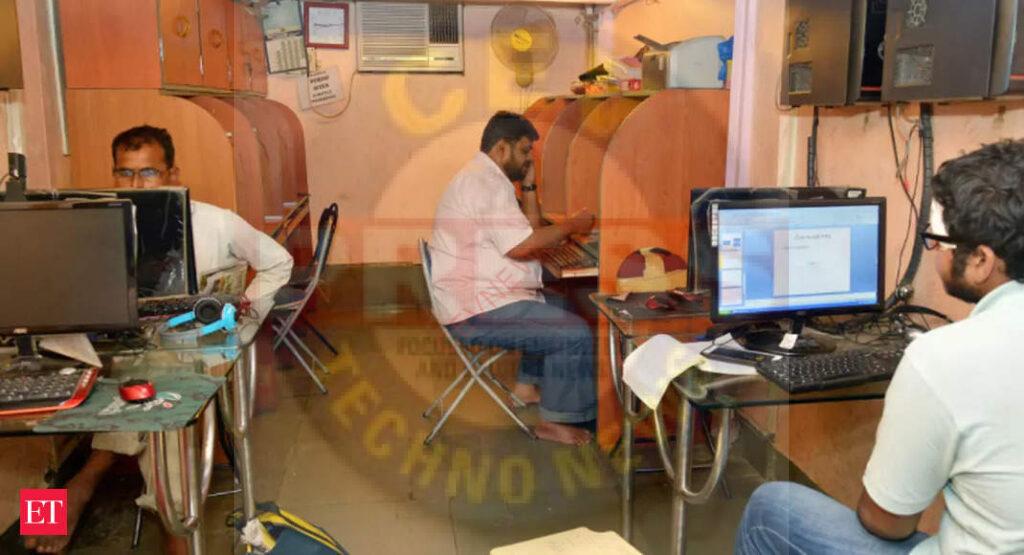Rajesh Chharia, president, Internet Service Providers Association of India (ISPAI), said “the business case of smaller ISPs would definitely take a beating” as they won’t have clarity around actually meeting the customer expansion targets at the year-end to be eligible for licence fee exemption, and could lose out if they are forced to cut rates in advance to attract customers and eventually don’t qualify for the yearly waivers.Trai has recommended a minimum 5-year licence fee exemption for service providers to boost proliferation of wired broadband networks but wants them to ensure a net 15% rise in their broadband user base annually to qualify for such waiver. Wired broadband service providers pay 8% of their adjusted gross revenue (AGR) as licence fees to the government.Queries to India’s telcos – Bhartiand Reliance Jio – went unanswered.“The 15% user base growth benchmark is somewhat arbitrary, and if this is found to be unworkable, Trai mustn’t hesitate to revise it downwards to a more market tested threshold,” Mahesh Uppal, a director at telecom consultancy firm, Com First (India), told ET.Crisil Research director Isha Chaudhary, said the customer expansion benchmark could have been more effective if “20% of the targeted rise” is achieved from rural areas. “This specific condition could significantly boost wired broadband penetration in rural areas, which otherwise is an urban phenomenon.”In the fiscal fourth quarter, FY21, India’s fixed broadband subscriber base rose 2.1% on quarter to 22.3 million, said ICICI Securities, analysing Trai data.This, the brokerage said, was led by a 21.6% on-quarter growth in FTTH (fibre-to-the-home) subs to 8.4 million. Reliance Jio’s market share inched up to 11.4% of total FBB (fixed broadband) subs, while it was 31% of FTTH subs. Bharti’s market share in FBB was up 100 bps to 13.6% despite RJio’s aggression while state-run BSNL’s has dipped 12.2pps to 30% in the past one year.Big telcos have also voiced apprehensions about a Trai proposal calling on the government to develop an e-marketplace that will be able to digitally access the strategic passive infrastructure resource details of individual telcos, ISPs and infrastructure providers using a Geographic Information System (GIS). The proposed e-marketplace is for the leasing and trading of passive telecom infrastructure“If Trai’s proposal is accepted, it can have grave national security implications, especially if this critical data falls in the wrong hands…acts of sabotage, by way of mass fibre cuts, causing severe damage to national telecom resources could become a reality,” said a senior telco executive, who did not wish to be named.The Broadband India Forum (BIF) was more upbeat about Trai’s suggestions, saying its decision to revise the minimum download speed of wired broadband to 2 Mbps from the present 512 Kbps would set a minimum uniform quality benchmark for broadband users.The broadband lobby body, representing global tech giants such as Google, Microsoft, Facebook, Intel, Qualcomm, Apple amongst others, said Trai’s call for a pilot Direct Benefit Transfer (DBT) programme is a “potential gamechanger” that could drive proliferation of rural digital connectivity like never before.
Trai recommendations to push wired broadband may have little impact

The Telecom Regulatory Authority of India’s recommendations to boost broadband connectivity may have a limited impact as the proposed five-year licence fee waiver linked to companies achieving 15% on-year growth in their wired broadband user base is seen as too stiff, industry experts and analysts said.Such licence fee exemption with strings attached, they added, is also inadequate to bridge the viability gap funding (VGF) involved in rolling out wired broadband networks in rural India. This, since rolling out wired broadband infrastructure in rural markets is several times more expensive than mobile broadband coupled with a weaker business case.Further, industry experts said if the government backs Trai’s suggestions, in their current form, it could lead to consolidation in the wired broadband space as smaller internet service providers (ISPs), who are largely present in major cities, will find it tough to compete with the larger players in meeting the recommended customer base expansion targets to avail of the licence fee waiver.
